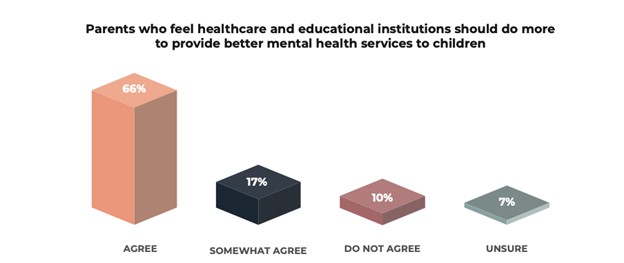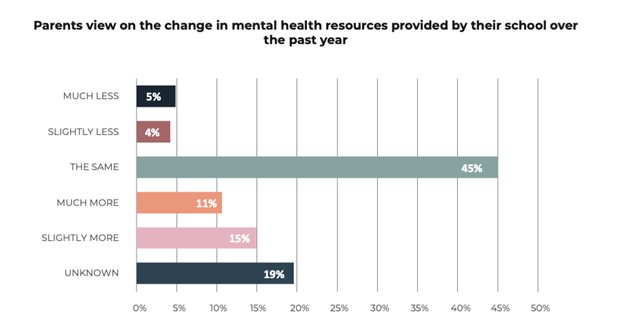School counselors and social workers, teachers, and administrators have always been integral to a parent’s support network. This is particularly true for children who struggle in class and have trouble accessing their curriculum. Collaborative communication between a school and parents is critical for ensuring positive student outcomes.
Although clearly an issue before the pandemic, the pandemic has increased our collective awareness of children’s mental health issues and schools’ role in addressing those challenges. At the height of the pandemic, we were aware of the toll that the effects of the pandemic were taking on the nation’s school children, but we were functioning in a survival mode. As we emerge from this survival mode, it is clear that our school-age children are in crisis.
According to an October 30, 2022, Wall Street Journal article, “A mental-health crisis among children and teens that had been brewing for years worsened as routines were disrupted in the pandemic and many kids faced isolation and loss.”
Parents Looking to Schools for Mental Health Resources
Parents are increasingly turning to schools for support. According to a new nationwide survey of more than 1,100 parents of children between the ages of five and 18, 83% of surveyed parents said schools and healthcare providers should do more to provide better mental health services.

This is not surprising – parents have historically turned to schools for support when it comes to finding resources for children who struggle in the classroom and at home.
Related:
Teletherapy’s crucial role in reaching remote students
Children’s mental health remains a major concern
Schools are realizing that providing mental healthcare is much like the importance of free school lunches. Just as children cannot learn on an empty stomach, mental health problems can impact students’ ability to engage in academic content. Some schools have responded, aware of the need to provide more mental health services to children. Parents report seeing that change. Although 45% of parents say support from schools has remained the same, about 26% of parents think their schools have increased mental health services in the past year.

The importance of strong support networks
A parent’s ability to care for their children correlates to the strength of their support network. Parents with stronger support networks are better equipped to care for their children. For example, among parents surveyed with strong support networks:
- 73% were able to access adequate mental health care for their child, versus 43% who do not have a strong network.
- 37% say they experienced mental health challenges during the past year, versus 56% who do not have a strong network.
- 92% feel their child’s mental health has improved or remained the same in the past year, versus 80% who do not have a strong network.
The known link between parents’ mental health and their children’s mental health is not a new concept and is rather intuitive. The survey data highlights the real impact of that link. Parents with strong support networks indicated better access to mental health care for their children, a critical component to improving mental health in the long term.
Schools are an important part of a parent’s support network
The survey indicated that parents with strong support networks were more likely to find support for their children, and those parents are significantly more likely (40%) to count their children’s teachers as part of their support networks versus parents who say that they do not have strong support networks (15%). That dichotomy is consistent with how much parents who have strong networks interact with school administrators (21%) vs. (6%) and carries over to their communications with school guidance counselors (27%) vs. (12%).
Working together
In the survey, 29% of parents surveyed said their children’s mental health improved in the past year, but for the vast majority of students, their mental health is still impacted by the pandemic and issues present pre-pandemic. For these students, it’s critical to help parents find the resources that they need. The survey shows that parents with strong networks lean on schools to help find the resources to improve their children’s well-being. Parents are looking for increased support from schools. Some schools have made moves to meet that need, and by working collaboratively with parents, they can provide the best outcomes for the children in their care.
- 4 ways to encourage play in education - April 25, 2024
- CoSN IT Leader Spotlight: Lisa Higgins - April 25, 2024
- It’s time to pay student teachers - April 25, 2024


